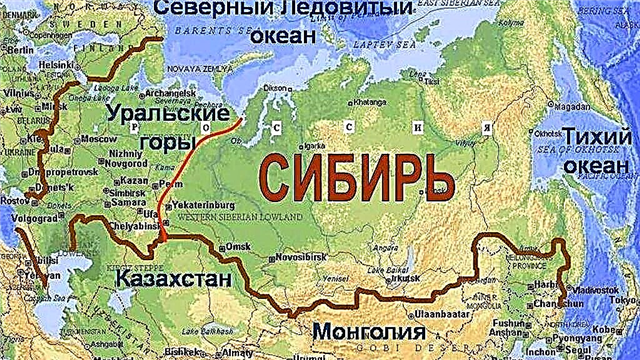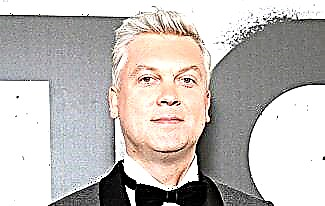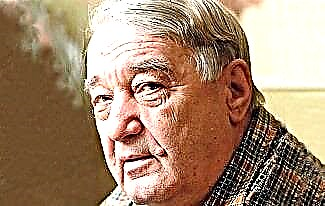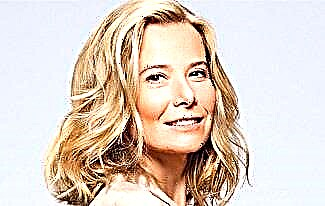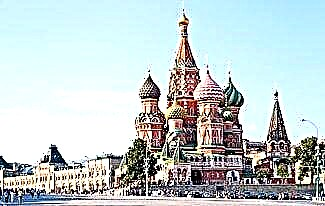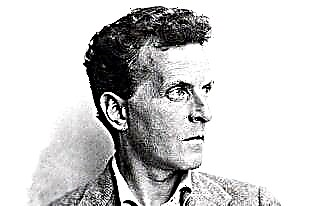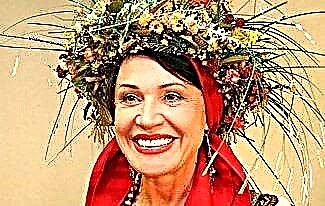Denis Diderot (1713-1784) - French writer, philosopher, educator and playwright, who founded the "Encyclopedia, or Explanatory Dictionary of Sciences, Arts and Crafts." Foreign honorary member of the St. Petersburg Academy of Sciences.
There are many interesting facts in the biography of Diderot, which we will talk about in this article.
So, before you is a short biography of Denis Diderot.

Biography of Diderot
Denis Diderot was born on October 5, 1713 in the French city of Langres. He grew up and was brought up in the family of the head waiter Didier Diderot and his wife Angelica Wigneron. In addition to Denis, his parents had 5 more children, two of whom died as minors.
Childhood and youth
Already in childhood, Diderot began to show excellent abilities to study various sciences. The parents wanted their son to connect his life with the church.
When Denis was about 13 years old, he began to study at the Catholic Lyceum, which trained future clergy. He later became a student at the Jesuit College in Langres, where he earned a Master of Arts in Philosophy.
After that, Denis Diderot continued his studies at the College d'Arcourt at the University of Paris. At the age of 22, he refused to enter the clergy, deciding to pursue a law degree. However, he soon lost interest in studying law.
During this period of his biography, Diderot wanted to become a writer and translator. An interesting fact is that due to his refusal to take up one of the learned professions, his father disowned him. In 1749 Denis finally became disillusioned with religion.
Perhaps this was due to the fact that his beloved sister Angelica, who became a nun, died of overwork right during the divine service in the temple.
Books and theater
In the early 1940s, Denis Diderot was involved in translating English works into French. In 1746 he published his first book, Philosophical Thoughts. In it, the author discussed the reconciliation of reason with feeling.
Denis concluded that without discipline, feeling would be destructive, whereas reason was needed for control. It is worth noting that he was a supporter of deism - a religious and philosophical trend that recognizes the existence of God and the creation of the world by him, but denies most of the supernatural and mystical phenomena, Divine revelation and religious dogmatism.
As a result, in this work, Diderot cited many ideas that criticize atheism and traditional Christianity. His religious views are best traced in the book The Skeptic's Walk (1747).

This treatise is like a conversation between deist, atheist and pantheist about the nature of divinity. Each of the participants in the dialogue gives his own pros and cons, based on certain facts. However, The Skeptic's Walk was not published until 1830.
The authorities warned Denis Diderot that if he starts distributing this "heretical" book, they will send him to jail, and all the manuscripts will be burned at the stake. the philosopher was still imprisoned, but not for "Walk", but for his work "A Letter on the Blind for Those Who Can See."
Diderot spent about 5 months in solitary confinement. During this biography, he explored John Milton's Paradise Lost, taking notes in the margins. After his release, he again took up writing.
It is curious that in his political views, Denis adhered to the theory of enlightened absolutism. Like Voltaire, he was skeptical of the popular masses, which, in his opinion, were unable to solve major political and moral problems. He called the monarchy the best form of government. At the same time, the king was obliged to possess all scientific and philosophical knowledge.
In 1750, Diderot was entrusted with the post of editor of the authoritative French reference book of the Enlightenment - "Encyclopedia, or Explanatory Dictionary of Sciences, Arts and Crafts." For 16 years of work on the encyclopedia, he became the author of several hundred economic, philosophical, political and religious articles.
An interesting fact is that together with Denis, such famous educators as Voltaire, Jean Leron d'Alembert, Paul Henri Holbach, Anne Robert Jacques Turgot, Jean-Jacques Rousseau and others worked on the writing of this work. 28 of the 35 volumes of the Encyclopedia were edited by Diderot.
Collaboration with the publisher André le Breton ended due to the fact that he, without Denis's permission, got rid of "dangerous" thoughts in articles. The philosopher was furious at Breton's actions, deciding to leave this monumental work.

In subsequent years, biography Diderot began to pay great attention to the theater. He began to write plays in which he often touched upon family relationships.
For example, in the play "Illegitimate Son" (1757), the author reflected on the problem of illegitimate children, and in "Father of the Family" (1758), he discussed the choice of a wife at the behest of the heart, and not at the insistence of the father.
In that era, the theater was divided into high (tragedy) and lower (comedy). This led to the fact that he established a new kind of dramatic art, calling it - "serious genre." This genre meant a cross between tragedy and comedy, which later began to be called - drama.
In addition to writing philosophical essays, plays and books on art, Denis Diderot published many works of art. The most popular were the novel "Jacques the Fatalist and His Master", the dialogue "Rameau's Nephew" and the story "The Nun".

Over the years of his creative biography, Diderot became the author of many aphorisms, including:
- "A person stops thinking when he stops reading."
- "Don't go into explanations if you want to be understood."
- "Love often deprives the mind of the one who has it, and gives it to those who do not have it."
- "Wherever you find yourself, people will always turn out to be no more stupid than you."
- “The life of wicked people is full of anxiety,” etc.
Diderot's biography is closely connected with Russia, or rather with Catherine II. When the empress found out about the material difficulties of the Frenchman, she offered to buy his library and appoint him as an observer with an annual salary of 1,000 livres. It is curious that Catherine paid the philosopher an advance for 25 years of service in advance.
In the fall of 1773, Denis Diderot arrived in Russia, where he lived for about 5 months. During this period, the empress talked with the French educator almost every day.
They often discussed political issues. One of the key topics is the transformation of Russia into an ideal state. At the same time, the woman was skeptical of Diderot's ideas. In her correspondence with the diplomat Louis-Philippe Segur, she wrote that if Russia develops according to the philosopher's scenario, chaos awaits it.
Personal life
In 1743 Denis began courting a lower-class girl, Anne-Antoinette Champion. Wanting to marry her, the guy asked his father's blessing.
However, when Diderot Sr. found out about this, he not only did not give his consent to the marriage, but achieved a "letter with a seal" - the extrajudicial arrest of his son. This led to the fact that the young man was arrested and imprisoned in a monastery.
A few weeks later, Denis managed to escape from the monastery. In November of the same year, the lovers were secretly married in one of the Parisian churches. An interesting fact is that Diderot Sr. found out about this marriage only 6 years later.

In this union, the couple had four children, three of whom died in infancy. Only Maria-Angelica managed to survive, who later became a professional musician. Denis Diderot could hardly be called an exemplary family man.
The man has repeatedly cheated on his wife with various women, including the writer Madeleine de Puisier, the daughter of the French artist Jeannie-Catherine de Meaux and, of course, Sophie Voldem. Volan's real name is Louise-Henrietta, while the nickname "Sophie" was given to her by Denis, who admired her intelligence and quick wit.
The lovers corresponded with each other for about 30 years, until the death of Volan. Thanks to the numbering of the letters, it becomes clear that the philosopher sent 553 messages to Sophie, of which 187 have survived to this day. Later, these letters were bought by Catherine 2, together with the library of the French philosopher.
Death
Denis Diderot died on July 31, 1784 at the age of 70. The cause of his death was emphysema, a disease of the respiratory tract. The thinker's body was buried in the Church of St. Roch.
Unfortunately, in the midst of the famous French Revolution of 1789, all the graves in the church were destroyed. As a result, experts still do not know the exact location of the remains of the educator.
Diderot Photos






